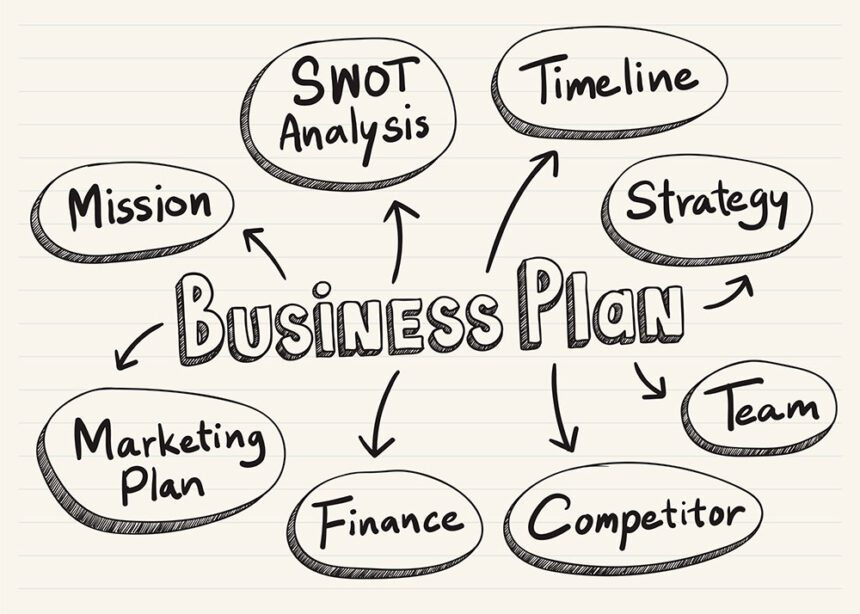Do not undervalue the significance of your company plan. It serves as the skeleton and cornerstone upon which your business will be built. It will act as a blueprint for your entire firm, at least for the first few years, and as the initial impression for innumerable prospective partners and investors.
Writing a Business plan can be simply because there aren’t any guidelines or standards for its length, structure, presentation, or even topic matter. But if you want to establish the groundwork for a stable firm and get enough attention from investors, you must find the appropriate answers to the right questions.
can be simply because there aren’t any guidelines or standards for its length, structure, presentation, or even topic matter. But if you want to establish the groundwork for a stable firm and get enough attention from investors, you must find the appropriate answers to the right questions.
1. What Need Are You Addressing?
This inquiry is significant because it goes beyond the straightforward “What does your business do? Giving a brief overview of your business and the products or services you offer is one thing, but if you want a strong business plan, you must go further.
It’s pleasant to think of your company as offering a helpful service, and it’s a lot simpler to envisage customers purchasing it if you’re enthusiastic about the concept. But when you think about what motivates your clients’ purchase decisions, you need to be analytical and critical. What essential customer needs does your organization meet? Research that demonstrates the need genuinely exists should be used to support this.
2. What Makes You Different?
There is a big world out there, and startups come and go all the time. It’s possible that other businesses already meet the crucial need you identified in question one. That doesn’t mean you can’t offer it any better or in another way; the challenge is figuring out what makes you stand out.
Prior to identifying any key players in your market, you must conduct some research. Recognize the techniques they employ as well as the things they accomplish well and badly. Decide what makes you special, then emphasize it. This will make you more distinctive.
3. Who Is Your Audience?
Here’s a hint: “everyone” cannot be the answer. No matter how practical or beneficial your product or service is, there’s no way you can sell to everyone on the entire planet. To choose the appropriate course of action, consider variables like age, sex, education, location, employment position, and marital status. You should also conduct some initial market research.
Don’t be overly dedicated to one niche because your target population could change over time. Also keep in mind that after you’ve made a name for yourself in one area, it’s simple to expand to others, so if you have several major demographics, it might be best to start by concentrating on one.
4. How Is Your Business Going to Make Money?
You’d be amazed at how many business owners forget to go into detail about their intentions, even though it seems like a straightforward question to address. The short response is “sell products/services,” but how will you go about doing that? What location will you sell at? What price will you ask for your goods?
What are your operational costs is the other side of the query? Who will you be paying? Which partners or services will you have to pay for? Will you ultimately be able to pay off your debt with the money you sell?
5. How will you promote your business?
Just as crucial as building your company is marketing it. If you don’t, nobody will ever know who you are & having the Right Accountant for Your Small Business. Your marketing plan should first be based on what other companies in your industry have done. Do they use offline or online marketing strategies? Do they use technology to promote their existence or do they go to trade shows and local events?
6. What Do You Need to Get Started?
For many potential partners and investors, this is the bottom line. All enterprises must begin someplace, yet the starting point differs greatly between industries and among business owners. Do you require any specialized tools? Who will you have to employ? How much will be required for the first run? You should be able to determine the precise amount of capital and initial resources you require by asking yourself these questions.
Answering these issues is a continuous process, despite what can seem contradictory. Your business plan should be a dynamic, ever-evolving document that changes as your business does. You’re going to experience fresh possibilities, obstacles, and hundreds of other elements along your entrepreneurial journey that weren’t even on your radar when you were developing the first business plan. You’ll need to update your Business strategy and adjust your responses to these questions if you want to thrive.







